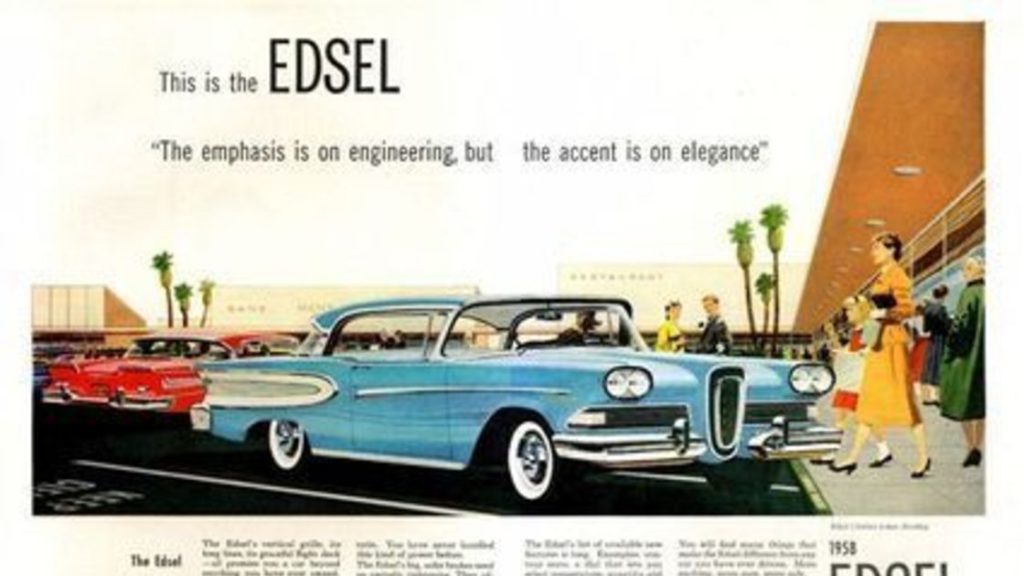
From ‘driving to ‘being’
“A developed country is not a place where the poor have cars. It’s where the rich use public transport” Gustavo Petro
The car as it currently stands is a beautiful anachronism.
As a mystic sign of (primarily male) potency and a totem of freedom it’s glory days were, at least in the ‘West’, sometime between the 1950s and the 1970s. The democratisation of ownership that came with the post war golden age of consumption deified the automobile as a symbol of individualisation, autonomy and possibility. In the US particularly, its fetishisation was tied up intimately with early sexual experience as recognised by Ernst Dichter; a first space in which agency could be expressed, where you could get away from the parental gaze in the exurban sprawl of the 50s consumer boom.
The car meant escape, freedom, possibility and both product evolution and the marketing myth reflected this. Shots of convertibles, top-down, endless stretches of empty tarmac ahead, Headlines proselytising power, speed, muscular potential. Increasingly powerful engines, aggressive styling, ridiculous names (Jensen Interceptor!?!) all catalysed the myth.
As the late 20th Century saw a move from a ‘bactrian’ to ‘dromedary’ graph of global affluence, carmakers sold this same legend to places as diverse as Dubai to Davao; the myth of driving.
However we are at an inflection point. The open road is a myth. The UN reported in 2014 that the majority of the world’s population now lives in cities, a significant proportion of which lives in densely populated ‘megacities’. If you have ever got in a Taxi in Shanghai or Sao Paulo, you will understand what this means for the this fallacy of driving freedom. The RAC estimates cars in the UK are, on average parked and unused 96.5% of the time. Parking wastes valuable urban spaces and forces longer commutes and in the most expensive cities is often extortionate. Owning a car is increasingly a burden rather than a freedom. And there are signals of this in the growth of car-sharing schemes, the role of products such as UBER’s in freeing up cities (let us park the flurry of criticism which they are currently under… ) At the same time, self driving technology seeks to free us up from the burden of sitting in charge of a vehicle in traffic, turning time that would otherwise be wasted crawling along behind the wheel into productive hours. The very real threat of self-driving is that it will catalyse the move away from ownership altogether in the traditional automotive sector…. The weak signals are already there…
So it’s all pretty grim then for car-makers? Not necessarily. Based on my recent observations, despite ‘driving’ becoming more and more of a chore, there is still some magic left in the car yet. But to harness it, and set-up their brands for future success as the the automobile is dragged and disrupted kicking and screaming into the 21st Century, auto-makers will need to reframe what the category really is. Historically it was about ‘driving’ but in reality now, it is about ‘being’. People still value the time, space and privacy of being in their own car, even in a traffic jam, so long as you can make that experience a rewarding one. The category, even though it hasn’t realised it yet itself is in the business of selling ‘time well spent’.
The implications of this are huge. Think hero features such as soundproofing, intelligent cruise control, audio system and In-car entertainment and connectivity. Designer interiors and hero shots of upholstery rather than exterior angles. And think about how fundamentally differently you you talk about that ‘being’ experience. Whether by accident or design, Lexus hinted at it as early as 2002 ( http://randomarchitecturememories.com/home/lexus-sc430-rome-saatchi-saatchi-carl-erik-rinsch ) and cult cars such as the Nissan Cube and others are implictly about that experience.
Of course there will still be moments that are about ‘driving’ but the reality is they are losing relevance as they decrease, and will lose resonance when it comes to purchase. If car-makers want to fight against a world of mass private-public transport and post-ownership automobiles, they need to sell a unique experience that comes with ownership. And that experience is about ‘being’ not ‘driving’